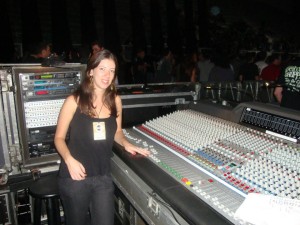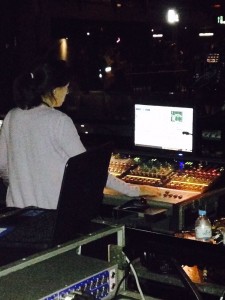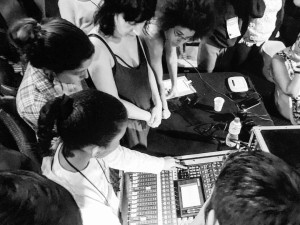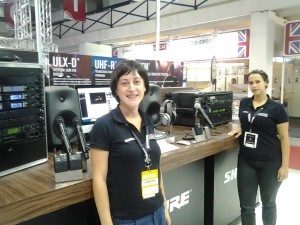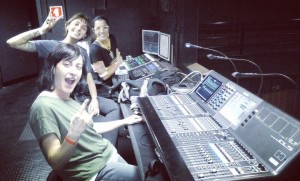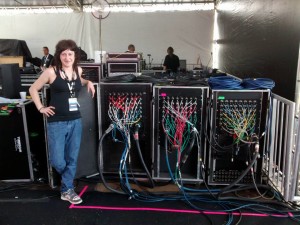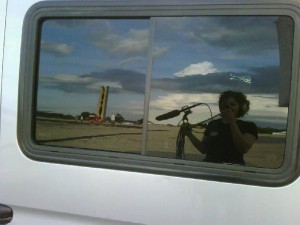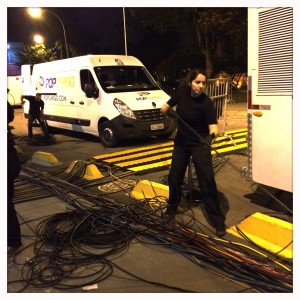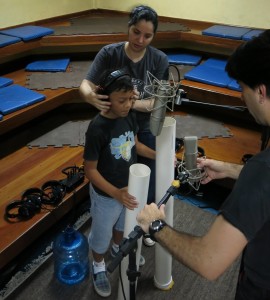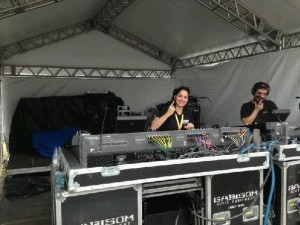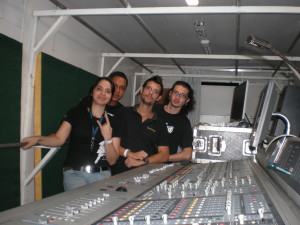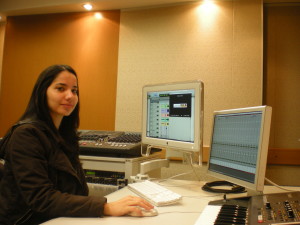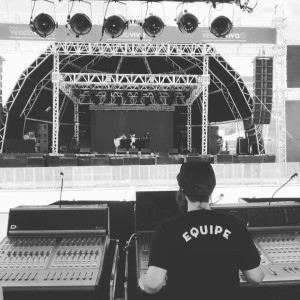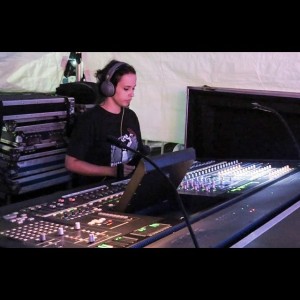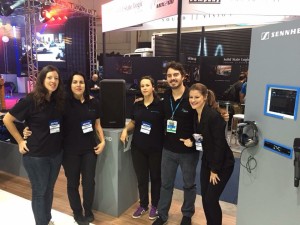Each culture has its own stereotype, and Latin Americans in general – specifically Brazilians – are expected to be happy-emotional-hot-friendly people. As it is with any stereotype, (although this is not a totally wrong assumption), it is a generalization, and it is not our deep dark selves – of course. From my “insider” point of view, I would say that our best, not stereotyped characteristic is resiliency and flexibility.
We are as Sound Engineers multitaskers.
To begin with, we have a lot of difficulty in becoming sound engineers at all. The first bachelor’s degree in audio in Brazil was offered starting in 2001. Before that, we had to rely only on shorter courses (excellent ones), which began around 1994. But there were no specific degrees for audio. One could study for a bachelor’s in engineering (electrical, electronic or any other branch of engineering) and specialize a little in acoustical engineering. We all know that it is not exactly what you need to be a sound engineer. But it is an excellent degree to have. So most of us don’t have a degree, or we have degrees in “whatever”: I have known sound technicians with degrees varying from psychology to physics. Today we have more courses, more options for learning the craft of sound. The internet has helped access to fresh information. But still, formal education in Brazil is for the few.
Another characteristic is that things in Brazil change drastically. So you might suddenly have a lot of jobs in sound reinforcement, and five years later there could be a political or economic crisis that forces you to look for jobs in mastering. One year you have a lack of professionals for sound editing, and ten years later you must know how to record live for 5.1 music programs.
It is very rare to be responsible for sound reinforcement for one artist for more than five years. There is no such concept as building a team that will be working for years and years. Often you are responsible for FOH or monitor mixing for more than one artist. We get paid for each show we do, we don’t have an estimated monthly income, so you have to work for many places to have a nice amount of tour dates for the whole year.
- Lilla Stipp Monitor Mixing
- Lilla Stipp multitasking: foh mixing and monitor mixing
One artist will want you to do their P.A. Mix; another prefers you to mix their monitors. You have to know how to work in the FOH and onstage doing monitors.
During the nineties there was a lack of professionals for sound editing, you could work the whole year only editing. Now, there is no need at all for that professional. The same professional who records or mixes is the one who will be editing everything.
On some occasions, you will be the one setting up the sound system and the system engineer. So you must know how to do both jobs. You have to study and learn this. It is very common to have only one engineer doing FOH and Monitors at the same time, no matter where the console will be placed and no matter the size of the gig. It’s the real “just do it” thing.
Even when there was not a crisis in the music industry (when there was a budget for making a record, and you would be inside a studio, which would be locked out only for you, for a whole year), even then, you could find yourself recording and mixing. Rarely would you make a career only recording, or only mixing? Well, today, with artists recording on their own in their home studios, that dream of being specialized in recording is further away.
Most Brazilian sound engineers who are known as good mixers will take on Mastering. Of course, why not? It is another job when times get tough.
So the world has made us quick learners and quick executors. Never do we have time to do things as they should be. We’re always wrapping it up very fast. It is almost a rule here: you travel to the venue the same day you will be doing the show. There are some of us who are teachers in the audio schools.
- Marzia Brini teaching
- Marzia Brini product specialist
- Marzia Brini all girls house mix,
- Marzia Brini patch girl
One day we’re mixing a show, the next we’re mixing a TV program. The following week, we’ll be setting up a system, and so on.
- Roberta Siviero Boom Recording
- Roberta Siviero PA Set Up
- Roberta Siviero Recording
- Roberta Siviero FOH Mixing
- Roberta Siviero Record Team
- Roberta Siviero Recording Studio
Obviously, there is a lack of in-depth knowledge in one particular branch of audio engineering. But there is a deep knowledge of sound in its various forms. And, we’re never in a comfort zone. Never ever. Always on the move.
- Adriana Viana Mixing FOH
- Adriana Viana Mixing Monitors
- Adriana Viana Product Specialist
Would we like to have more comfort? Yes, who doesn’t? But this is what we have and what we are. Working and being the Brazilian way.
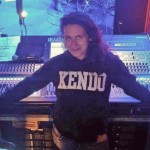 Florencia Saravia-Akamine has over 20 years dedicated exclusively to audio, whether in the studio or live. Today, she centered her activities in the areas of “live sound” and recording, editing and mixing for broadcasting. (This has changed through the years and will probably keep on changing everyday. 🙂
Florencia Saravia-Akamine has over 20 years dedicated exclusively to audio, whether in the studio or live. Today, she centered her activities in the areas of “live sound” and recording, editing and mixing for broadcasting. (This has changed through the years and will probably keep on changing everyday. 🙂
More on Florencia Saravia-Akamine at Pro Audio Clube

